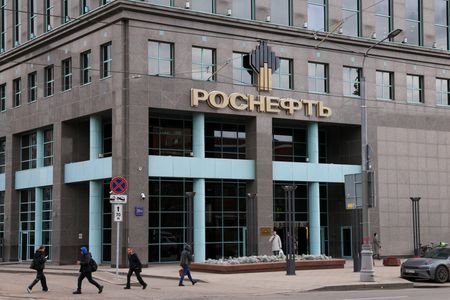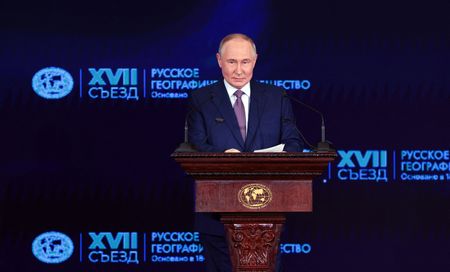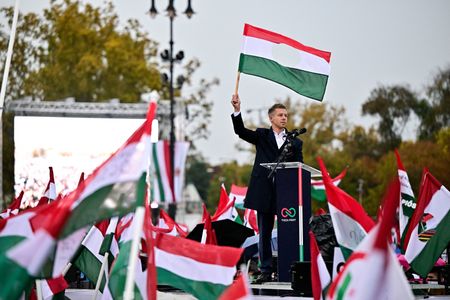By John O’Donnell and Christoph Steitz
BERLIN (Reuters) -Germany is seeking an exemption from U.S. sanctions on Russian oil company Rosneft’s German business, a person with direct knowledge of the government discussions said on Thursday, after banks said sanctions could stop them dealing with the local energy supplier.
Rosneft’s German business is controlled by German authorities but Russian-owned. It is a key supplier, routing and refining oil to petrol pumps and some airports in Europe’s biggest economy.
Rosneft’s German arm, which includes stakes in the Schwedt, MiRo and Bayernoil refineries, was put under government trusteeship in 2022 after Russia’s full-scale invasion of Ukraine, which rocked decades-long energy ties with Moscow.
A spokesperson for Germany’s economy ministry said U.S. sanctions should not apply to Rosneft’s German business because it was decoupled from its Russian parent and was under German control.
Rosneft and the U.S. Treasury did not immediately respond to a request for comment.
U.S. President Donald Trump imposed sanctions on Russia earlier this week, targeting Rosneft and Lukoil, amid growing frustration with Russian President Vladimir Putin who has not agreed to a ceasefire in Ukraine.
The sanctions against Russia’s two largest oil firms are a major policy shift for Trump, who has resisted international calls for fresh sanctions over Russia’s war in Ukraine.
The sanctions by the United States follow a similar move last week by Britain to sanction Rosneft and Lukoil.
A few days later, London issued a special licence allowing businesses to work with two German subsidiaries of Rosneft, on the grounds that they were under German state control. This followed lobbying by the German government, the source said.
The United States is the world’s most powerful sanctions authority in part because it can target banks working with blacklisted companies, severing a bank’s access to the dollar, a cornerstone of international finance.
Losing access to the U.S. currency would plunge any bank into a crisis.
So far, Berlin has shied away from nationalising Rosneft’s activities, opting instead to maintain de facto control via a trusteeship that still leaves legal ownership in Russian hands.
(Additional reporting by Christoph Steitz and Miranda Murray; editing by Rachel Armstrong and Elaine Hardcastle)









